Stickers and stands. At an event like FOSDEM you listen to sessions speak to people at stands or otherwise. On this page I gathered the references to things other than sessions.
Keda
Kubernetes-based Event Driven Autoscaling
Not something from FOSDEM but somehow came across it.

KEDA allows for fine grained autoscaling (including to/from zero) for event driven Kubernetes workloads. KEDA serves as a Kubernetes Metrics Server and allows users to define autoscaling rules using a dedicated Kubernetes custom resource definition.
KEDA can run on both the cloud and the edge, integrates natively with Kubernetes components such as the Horizontal Pod Autoscaler, and has no external dependencies.
Raku programming language

Hi, my name is Camelia. I’m the spokesbug for Raku. Raku intends to carry forward the high ideals of the Perl community. Raku has been developed by a team of dedicated and enthusiastic volunteers, and continues to be developed. You can help too. The only requirement is that you know how to be nice to all kinds of people (and butterflies). Go to #raku (irc.freenode.net) and someone will be glad to help you get started.
- Object-oriented programming including generics, roles and multiple dispatch
- Functional programming primitives, lazy and eager list evaluation, junctions, -utothreading and hyperoperators (vector operators)
- Parallelism, concurrency, and asynchrony including multi-core support
- Definable grammars for pattern matching and generalized string processing
- Optional and gradual typing
LXD
LXD is a next generation system container manager. It offers a user experience similar to virtual machines but using Linux containers instead.
It’s image based with pre-made images available for a wide number of Linux distributions and is built around a very powerful, yet pretty simple, REST API.
To get a better idea of what LXD is and what it does, you can try it online! Then if you want to run it locally, take a look at our getting started guide.
The LXD project was founded and is currently led by Canonical Ltd with contributions from a range of other companies and individual contributors.
Design
The core of LXD is a privileged daemon which exposes a REST API over a local unix socket as well as over the network (if enabled).
Clients, such as the command line tool provided with LXD itself then do everything through that REST API. It means that whether you’re talking to your local host or a remote server, everything works the same way.
Relationship with LXC
LXD isn’t a rewrite of LXC, in fact it’s building on top of LXC to provide a new, better user experience. Under the hood, LXD uses LXC through liblxc and its Go binding to create and manage the containers.
It’s basically an alternative to LXC’s tools and distribution template system with the added features that come from being controllable over the network.
Marvin
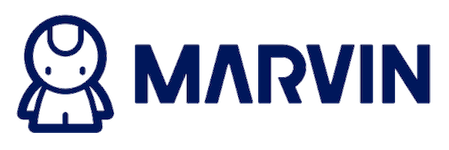
Apache Marvin-AI is an open source Artificial Intelligence platform that focus on helping data science team members, in an easy way, to deliver complex solutions supported by a high-scale, low-latency, language agnostic and standardized architecture while simplifying the process of exploitation and modeling.
OpenWhisk

Apache OpenWhisk is an open source, distributed Serverless platform that executes functions (fx) in response to events at any scale. OpenWhisk manages the infrastructure, servers and scaling using Docker containers so you can focus on building amazing and efficient applications.
Trafodion
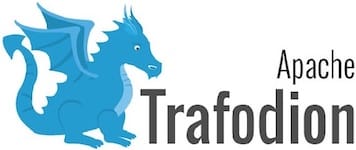
Apache Trafodion] is a webscale SQL-on-Hadoop solution enabling transactional or operational workloads on Apache Hadoop.
The name “Trafodion” (the Welsh word for transactions, pronounced “Tra-vod-eee-on”) was chosen specifically to emphasize the differentiation that Trafodion provides in closing a critical gap in the Hadoop ecosystem.
Trafodion builds on the scalability, elasticity, and flexibility of Hadoop. Trafodion extends Hadoop to provide guaranteed transactional integrity, enabling new kinds of big data applications to run on Hadoop.
checkmk

Open Source is the foundation of our company. Checkmk has long been available as an open source IT monitoring solution, supported by a large user community. In addition, we offer commercial, ‘enterprise-grade IT’ editions that offer professional support as well as high performance and many enterprise functionalities.
loklak (social search)

Loklak’s mission is to make the world’s social media information openly accessible and useful generating open knowledge for all.
KubeSec
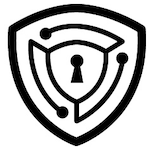
Kubesec.io from controlplane. Security risk analysis for Kubernetes resources
osfc
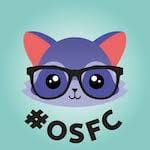
Closed source firmware development has been the de-facto standard for the electronics industry since its inception. That didn’t change even when open-source took off in other areas. Now, with changing use cases and strict security requirements, it’s more important than ever to take open-source firmware development to the next level. That’s why we’re inviting you to the Open Source Firmware Conference.
Organizer
low-level Security Related Projects
- Coreboot is an extended firmware platform that delivers a lightning fast and secure boot experience on modern computers and embedded systems.
- u-bmc, Open-Source firmware for your baseboard management controller (BMC)
- TrustedFirmware provides a reference implementation of secure world software for Armv8-A and Armv8-M.
- tianocore is an open source implementation of the Unified Extensible Firmware Interface (UEFI). EDK II is a modern, feature-rich, cross-platform firmware development environment for the UEFI and UEFI Platform Initialization (PI) specifications.
- LinuxBoot is a firmware for modern servers that replaces specific firmware functionality like the UEFI DXE phase with a Linux kernel and runtime.
- SlimBootloader (SBL) is designed with the modular approach by providing hardware initialization, then launching a payload to boot OS.
- U-Boot, the Universal Boot Loader
- HardenedLinux, official repository of the HardenedLinux community
- OpenBMC, open-source firmware stack for Baseboard Management Controllers (BMCs).
- oreboot, downstream fork of coreboot, i.e. oreboot is coreboot without ‘c’.
Fiano
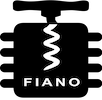
Go-based tools for modifying UEFI firmware.
cluster.dev
Kubernetes-based Dev Environment in Minutes

Cluster.dev is an open-source system delivered as GitHub Action or Docker Image for creating and managing Kubernetes clusters with simple manifests by GitOps approach.
Designed for developers that are bored to configure Kubernetes stuff and just need: kubeconfig, dashboard, logging and monitoring out-of-the-box.
Based on DevOps and SRE best-practices. GitOps cluster management and application delivery. Simple CICD integration. Easily extandable by pre-configured applications and modules. Supports different Cloud Providers and Kubernetes versions.
The project is in Alpha Stage, the first release is planned on 14 February 2020.
Principle diagram
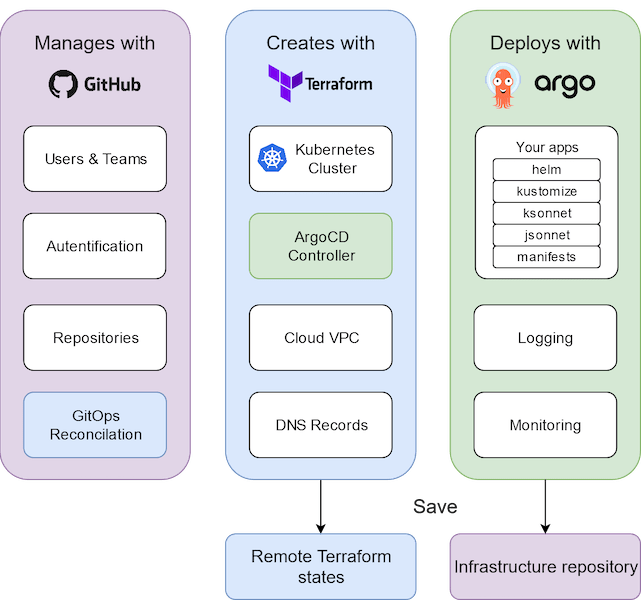
Argo CD

Argo CD is a declarative, GitOps continuous delivery tool for Kubernetes.
Matrix

Matrix is an open source project that publishes the Matrix open standard for secure, decentralised, real-time communication, and its Apache licensed reference implementations.
Maintained by the non-profit Matrix.org Foundation, we aim to create an open platform which is as independent, vibrant and evolving as the Web itself… but for communication.
As of June 2019, Matrix is out of beta, and the protocol is fully suitable for production usage.
Nuspell

Nuspell is a free and open source spell checker that is written in modern C++. It extensively supports character encodings, compounding, affixing and complex morphology. Nuspell offers also suggestions and personal dictionaries.
F-Droid
F-Droid is an installable catalogue of FOSS (Free and Open Source Software) applications for the Android platform. The client makes it easy to browse, install, and keep track of updates on your device.
Pine64

Pine64’s goals is to push the envelope and deliver 64-bit ARM that you want to use and develop for.
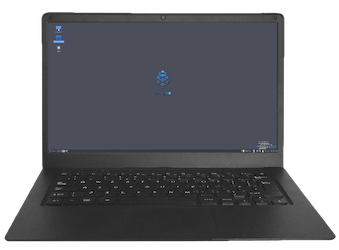
14" PINEBOOK Pro LINUX LAPTOP (ANSI, US Keyboard) – Out-Of-Stock, Estimated Pre-Order Reopen In End Of February 2020 $199.99
Metal3
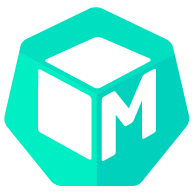
The Metal³ project (pronounced: Metal Kubed) exists to provide components that allow you to do bare metal host management for Kubernetes. Metal³ works as a Kubernetes application, meaning it runs on Kubernetes and is managed through Kubernetes interfaces.
KubeVirt

KubeVirt technology addresses the needs of development teams that have adopted or want to adopt Kubernetes but possess existing Virtual Machine-based workloads that cannot be easily containerized. More specifically, the technology provides a unified development platform where developers can build, modify, and deploy applications residing in both Application Containers as well as Virtual Machines in a common, shared environment.
PostGraphile
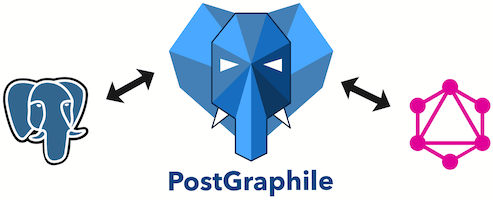
PostGraphile (formerly PostGraphQL) builds a powerful, extensible and performant GraphQL API from a PostgreSQL schema in seconds; saving you weeks if not months of development time.
If you already use PostgreSQL then you understand the value that a strongly typed and well defined schema can bring to application development; GraphQL is the perfect match for this technology when it comes to making your data layer accessible to your frontend application developers (or even API clients). Why duplicate your authorization and business logic in a custom API when you can leverage the tried and tested capabilities built into the worlds most advanced open source database?
PostgreSQL

PostgreSQL is a powerful, open source object-relational database system with over 30 years of active development that has earned it a strong reputation for reliability, feature robustness, and performance.
Haiku

Haiku is an open-source operating system that specifically targets personal computing. Inspired by the BeOS, Haiku is fast, simple to use, easy to learn and yet very powerful.
OWASP

The Open Web Application Security Project (OWASP) is a nonprofit foundation that works to improve the security of software. Through community-led open source software projects, hundreds of local chapters worldwide, tens of thousands of members, and leading educational and training conferences, the OWASP Foundation is the source for developers and technologists to secure the web.
Mozilla speech recognition project

Common Voice is Mozilla’s initiative to help teach machines how real people speak
Project Common Voice by Mozilla is a campaign asking people to donate recordings of their voices to an open repository. Mozilla will release audio files and transcripts along with limited demographic information about the speakers. With a large enough data set, it’s possible to train speech-to-text (STT) systems so they meet production-quality standards. The Common Voice project begins this summer, and we expect to launch the repository in the fall.
